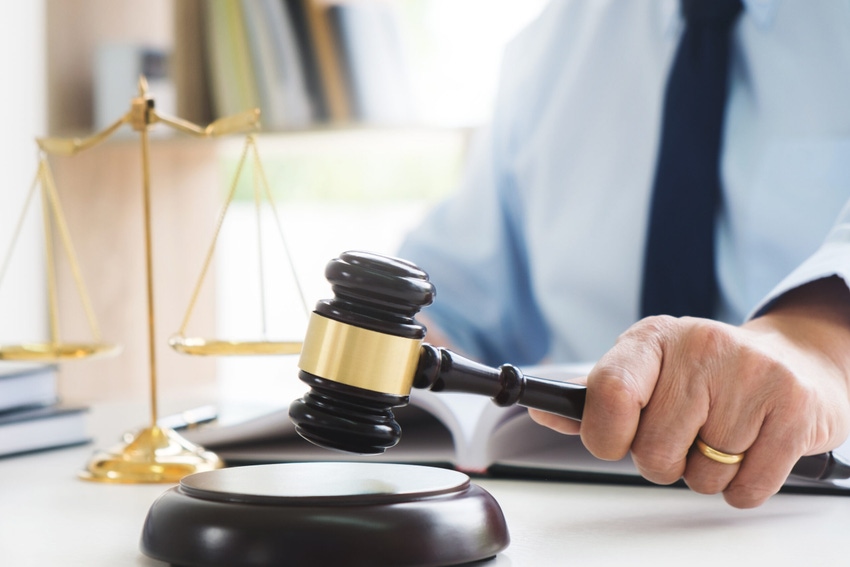Content Spotlight
Podcast: MilliporeSigma says education vital to creating unbreakable chain for sustainability
MilliporeSigma discusses the importance of people, education, and the benefits of embracing discomfort to bolster sustainability efforts.

Two co-founders of Taiwanese firm JHL Biotech were sentenced last month for plotting to steal trade secrets from Genentech and commit wire fraud exceeding $101 million. BioProcess Insider spoke to the attorneys who represented Genentech in this landmark civil and criminal case.
According to the suit, the story goes back thirteen years where former principal scientist Xanthe Lam and her husband, Allen Lam, conspired to commit stealing trade secrets from Genentech and passing the information to Taiwanese company JHL Biotech (now Eden Biologics).
While the Lams still await sentencing, they were not the only individuals facing criminal charges. The US Department of Justice (DOJ) also unsealed an indictment charging former CEO of JHL Racho Jordanov and former COO Rose Lin of conspiracy to commit trade secret theft, wire fraud, international money laundering, and obstruction of justice between 2011 and 2019.

Image: Stock Photo Secrets
Published court documents state that Jordanov and Lin were alleged to have engaged in a “fraudulent scheme” to steal confidential property from Genentech to drive the development and manufacture of biosimilars.
Additionally, the duo was accused of defrauding French firm Sanofi out of $101 million by entering a strategic partnership to manufacture and distribute biosimilars in China.
Sanofi allegedly paid JHL $101 million in cash. Jordanov faced accusations of signing representations and warranties that falsely claim JHL has no knowledge of infringing or misappropriating intellectual property from any third party.
Jordanov and Lin pleaded guilty to all charges in August 2021 and were sentenced in March this year.
Jordanov and Lin were both sentenced to a term of imprisonment for a year and one day, which will be followed by supervised release lasting 36 months with nine months being served in home confinement.
“Genentech was gratified by the culprits getting significant prison time for what is a crime and needs to be taken seriously,” said Laurie Mims, one of the attorneys who represented Genentech from Keker, Nest & Peters. She was keen to make it clear that if this situation was not investigated “it would allow companies like JHL to cheat the system, unfair to the innovator but also other players and biosimilar manufacturers who are playing by the rules.”
Fellow attorney Cody Harris echoed Mims’ sentiments saying that he is “pleased with the outcome of the civil litigation,” but added this case acts as a deterrent because it shows how “sharing trade secrets is a federal crime and if the case warrants it, charges will be brought. It is not just low-level people who can face charges, it can reach all the way to the top of the companies.”
Harris said that typically trade secret litigation is purely civil and matters to the party and legal press. But this specific case “was different because it was both civil and criminal, so it has had greater impact.”
Both Mims and Harris dubbed the timeline they had to work with as complex and difficult as they had to try and balance the two components together.
And for six months (after being tipped off by a Genentech employee) they had to watch Xanthe Lam carry on in her role at the firm without “being able to drop the hammer on her because the government was still proceeding with its investigation […] and once it became clear that other parties were aware, people involved tried to destroy emails and documents,” said Harris.
Furthermore, Mims discussed how their ability to be granted an injunction meant that they stopped economic harm from affecting Genentech as JHL were unable to get to market. While the firm had to “devote resources and money to the investigation and litigation but compared to cases where there are extensive sales and cheating products on the market, we’re thankful it didn’t get to that.”
Though it is evident how serious stealing trade secrets is, Mims put forward how poignant it is that there were no patients relying on this drug. Harris followed this up, saying that one thing he always thinks about in this case is the safety of patients who could have been receiving this drug.
“JHL’s mad dash to take the product, which Genentech had learned and developed expertise to ensure patient safety, poses the question would it have been safe to use under JHL’s control?”
You May Also Like